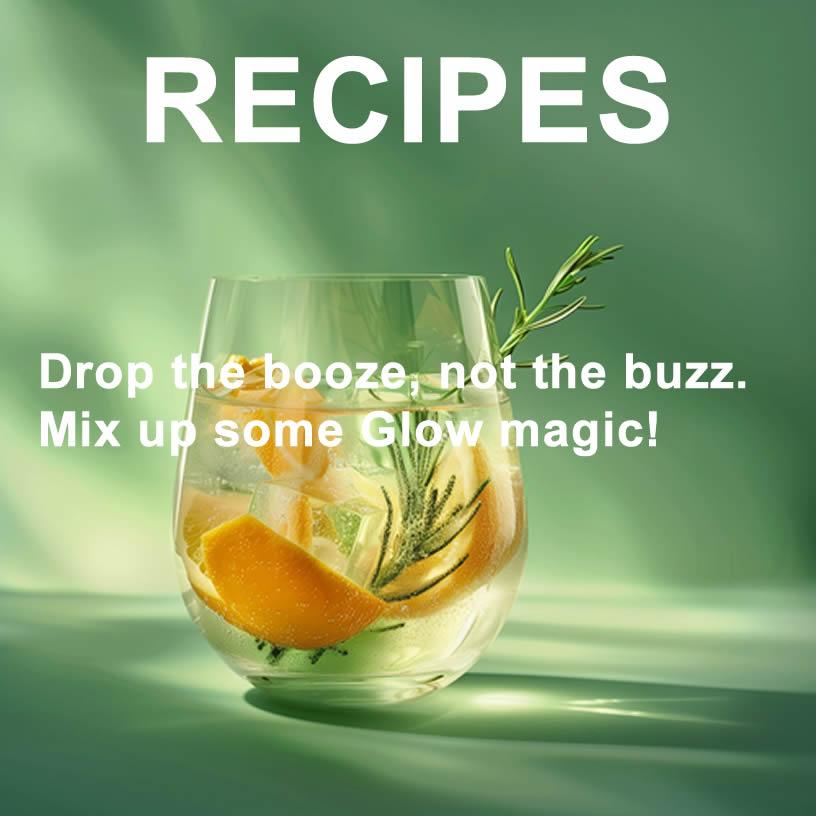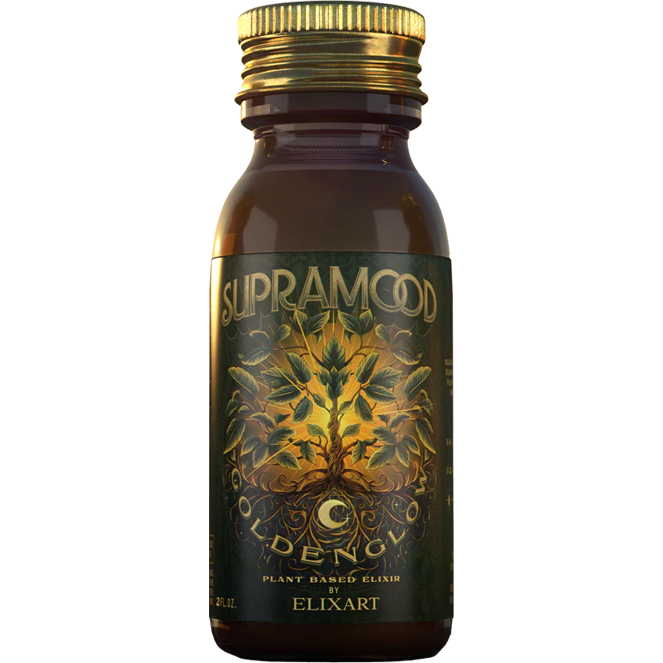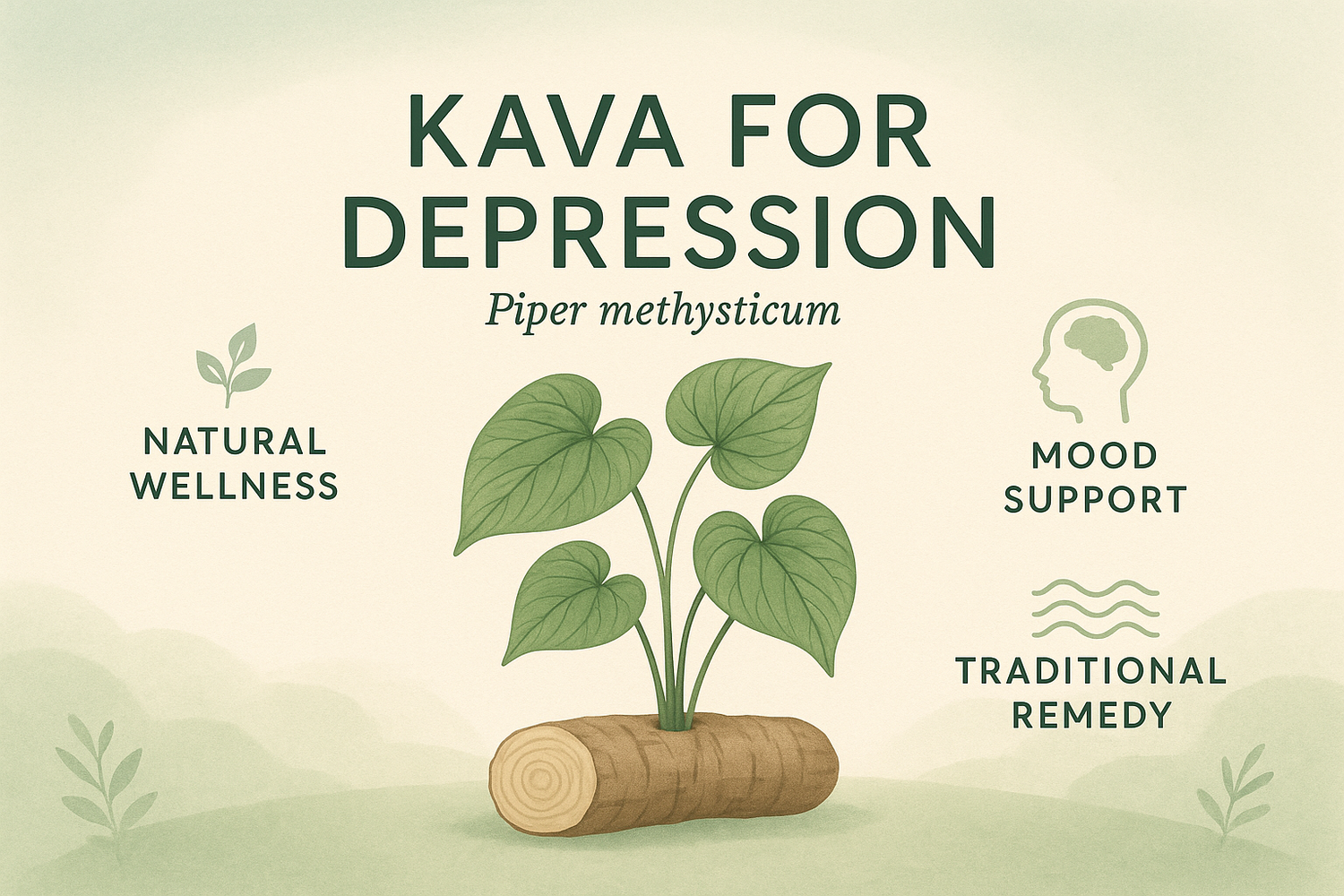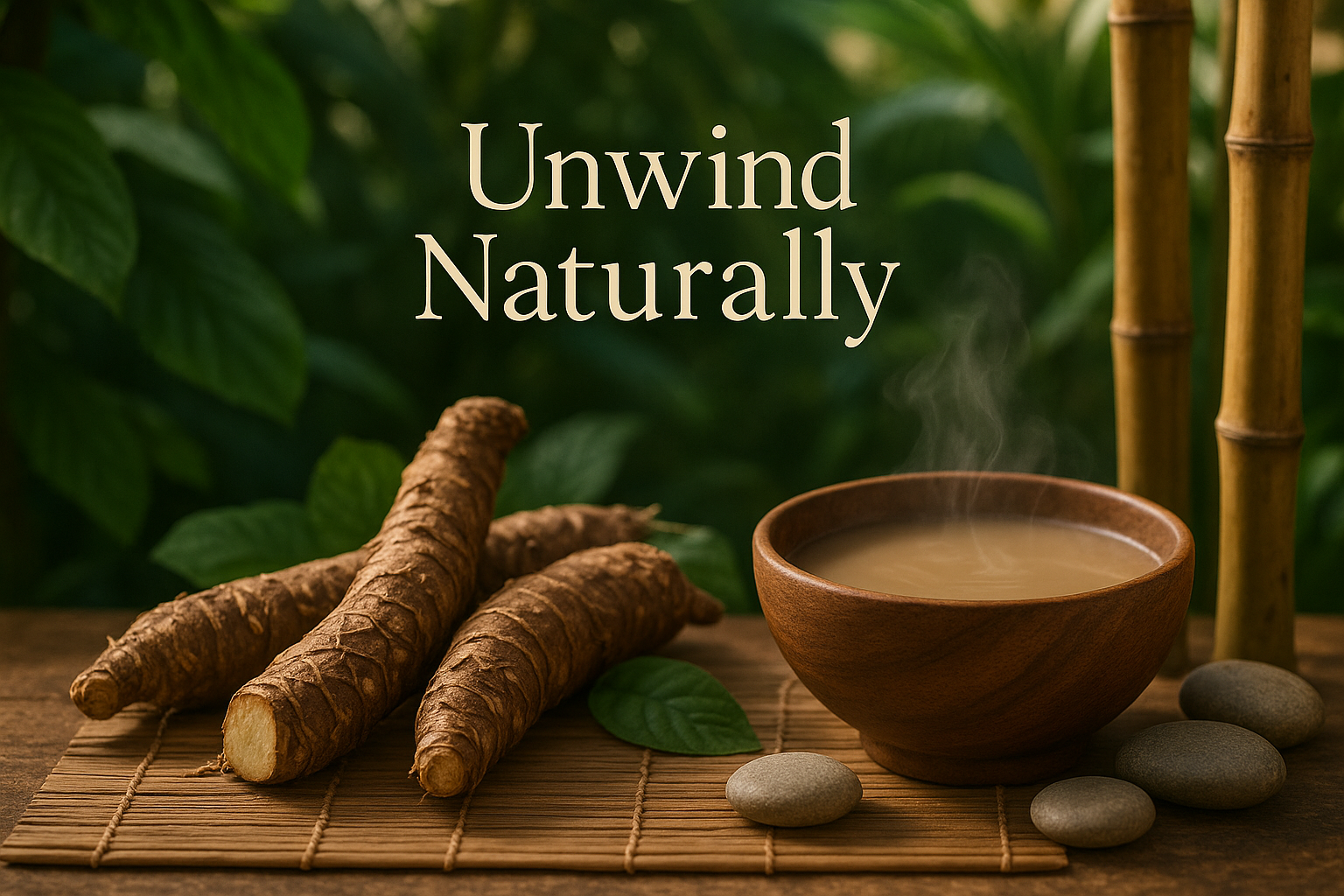Have you ever found yourself sitting with friends, enjoying a drink that not only relaxes you but also brings a sense of camaraderie? For many, kava has become that drink—there’s something deeply soothing about its effects. But beyond the social aspects, many people are curious: Can kava genuinely help alleviate symptoms of depression? To answer this question, we’ll navigate through expert insights, research findings, and shared experiences, shedding light on this intriguing herb.
What is Kava and How Does It Work?
Kava is more than just a beverage; it's a cultural experience deeply rooted in the Pacific Islands. The drink, prepared from the root of the kava plant, has been consumed for over 180 years in various Northwestern Melanesian cultures, such as Fiji, Tonga, and Vanuatu. Its calming effects have made it a favored choice for relaxation and social gatherings.
Definition and Origins of Kava
Kava, or “awa” as it is sometimes called, derives from the *Piper methysticum* plant. Traditionally, the root of this plant is ground into a fine powder, mixed with water, and consumed during ceremonial or social occasions. Have you ever wondered why it’s so important in these cultures? Effectively, it acts as a bridge to unite people, enhancing social bonds.
The Traditional Uses of Kava in Pacific Cultures
- Ceremonial drink: Kava is used in rituals, celebrations, and special gatherings.
- Healing properties: Indigenous people believe kava aids in relaxing the mind and body.
- Cultural significance: Sharing kava is a sign of hospitality and respect.
'Kava is not just a drink; it's a cultural experience that brings people together.' - Expert in Kava Culture
Basic Chemistry: What are Kavalactones?
Have you ever heard of kavalactones? They are the active compounds in kava responsible for its effects. There are about 18 types of kavalactones, but six main ones primarily affect its calming properties.
To break it down:
- Kavalactones interact with the brain's neurotransmitters, particularly the GABA receptors. This helps in reducing anxiety and promoting relaxation.
- Different kava varieties contain varying proportions of these kavalactones, leading to different effects.
Differentiating Between Kava Varieties
Just like wine, kava comes in various types, each with its unique flavor and effect. Some varieties promote calm, while others invigorate and uplift.
- Heady Kava Varieties: These are known to enhance mood and sociability. They’re often chosen for social gatherings.
- Heavy Kava Varieties: Typically more relaxing, these varieties are perfect for unwinding in the evening.
Choosing the right kava variety can make all the difference in the experience. It’s essential to know what you’re looking for. Are you seeking relaxation after a long day or trying to feel more social at a party?
Growing Popularity in Western Wellness Circles
In recent years, kava has gained traction in Western wellness communities. People are turning to this natural remedy as an alternative to synthetic medications, particularly for anxiety.
In the USA, demographic studies indicate a marked increase in interest in kava, especially as a natural remedy. As more people discover kava, it’s fascinating to see how it brings a piece of Pacific culture to the Western world.
Data Insight
Traditional Use Popularity in the USA
|
180+ years of consumption |
Increasing interest as an alternative remedy |
The combination of these elements makes kava a captivating topic worth exploring. Whether you are curious about its cultural origins or its effects on your well-being, understanding kava can enhance your experiences with it.
Engaging with kava opens the door to a tradition aimed at promoting peace, relaxation, and community bonding. Why not take that first step and join the kava experience? You might just find your new favorite way to unwind.
Top Questions About Kava for Depression
If you’ve been feeling low, you may have heard of kava. Its popularity is growing, particularly among those looking for natural mood enhancement. But does kava really help with depression? Let’s dive into some key questions about it.
1. Does Kava Really Help with Depression?
This question seems straightforward, but the answer isn’t as simple. Some studies suggest that kava may help alleviate symptoms of depression and anxiety. According to Mental Health America, “Kava has been shown in more than a dozen placebo-controlled studies to be effective with good tolerability for treatment of generalized anxiety, with some evidence for stress, depression, and insomnia.” That is encouraging! However, it’s essential to note that scientific consensus is still developing.
Many people use kava for its relaxing effects. Some even report feeling uplifted after consuming it. It provides a natural alternative for those looking to enhance their mood without using conventional treatments. But remember, it's not a universal solution for everyone.
2. What are the Recommended Kava Varieties for Mood Enhancement?
Not all kava varieties are created equal. Some specific types are known for their mood-boosting properties. For instance, the Pouni Ono and Samoa Ava varieties are particularly popular for their uplifting effects. These varieties are often described as "heady," causing feelings of euphoria and increased sociability.
- Pouni Ono: Known for its heady qualities, which can uplift your mood.
- Samoa Ava: Another heady variety that helps in social situations.
- Borogu: Offers a balanced experience, easing you into relaxation.
Considering the specific effects you wish to feel can guide your choice of kava. Want to lift your mood on a gloomy day? Go for a heady variety. Need something calming yet doesn’t knock you out? Look for a balanced option.
3. How Does Kava Compare to Conventional Treatments for Depression?
While kava shows promise, it's important to compare it with conventional treatments. Traditional pharmaceuticals often come with side effects and can take time to show effectiveness. Kava, on the other hand, may offer immediate relief for anxiety and tension without the lingering side effects associated with some medications.
Interestingly, researchers have noted that kava may be a suitable alternative, especially for those wary of pharmaceuticals. To put it another way, think of kava as a safety net: it's there to catch you, but you should still talk to a mental health professional before relying solely on it.
4. When Should You Consider Drinking Kava?
Knowing when to enjoy kava is crucial. If you find yourself overwhelmed or anxious during the day, sipping a balanced kava in the afternoon can provide relaxation without drowsiness. If sleep is elusive, consider a heavier variety at night. Talk about *timing your relaxation*!
It’s all about understanding your personal needs. Kava has been used socially for centuries in the Pacific Islands, traditionally serving as a way to bond and relax. This cultural context can remind us that sometimes, the most healing moments come when we socialize and unwind together.
Studies on Kava Recommendation on Consumption
|
Studies indicate kava's effectiveness for anxiety and depression. |
Consult with healthcare professionals to personalize your kava experience. |
|
More than a dozen placebo-controlled studies show good results. |
Choose varieties based on desired effects—heady for lifting mood, heavy for sleep. |
So, is kava the answer to your mood issues? While it shows promise, it’s essential to approach it thoughtfully. Also, keep in mind that kava isn't a replacement for medical advice. As one mental health researcher put it:
“Kava offers a promising alternative for individuals looking to enhance their mood naturally.”
This means it can be part of a broader strategy for emotional wellness.
Personal Stories: Kava’s Impact on Users
Many people are searching for ways to manage their emotions, especially when dealing with challenges like depression. Kava, a traditional beverage from the Pacific Islands, has gained attention for its potential mood-boosting benefits. Let’s explore some personal stories and experiences shared by users.
Real-life Testimonials: Users Struggling with Depression
Imagine feeling trapped in a cloud of sadness. It can be overwhelming. However, users have reported positive transformations after incorporating kava into their daily routines. For instance, a long-time user mentioned:
'Kava helps me unwind after a long day, but I always check in with my doctor first.'
This highlights an important point: it's crucial to consult a healthcare professional before trying something new, especially when dealing with mental health issues.
Positive Outcomes and Experiences Reported
Several users have emphasized the *uplifting effects of kava*. Many individuals have shared experiences where kava helped enhance their mood and sense of well-being. Here are some reported benefits:
- Lifting your mood
- Increasing sociability
- Helping you feel happier
- Making you feel euphoric
- Mentally and physically relaxing
- Easing you into an uplifting sense of calm
For many, kava serves as an alternative to alcohol for social relaxation. Drinking kava in group settings can promote connection and laughter, helping to alleviate stress and worries.
The Social Aspect of Kava Drinking
Communal drinking has always been a core aspect of kava culture. Think of it as a way to bond with friends. Many users find that sipping kava together creates *a shared experience that elevates their mood*. It’s not just the drink, but the act of coming together that fosters happiness. This social interaction can combat feelings of isolation that often accompany depression or anxiety.
Cautionary Tales: Users Who Experienced Side Effects
While many advocate for kava, some users have experienced side effects. It’s a mixed bag. A few individuals reported instances of drowsiness or gastrointestinal issues. This serves as a *cautionary reminder* about the importance of moderation. Just like with any supplement, overconsumption can lead to unintended consequences. Have you ever tried something that didn’t agree with you? It’s crucial to listen to your body.
Diverse Experiences from Users
Kava is not a one-size-fits-all solution. Users have varying opinions and results. Some are strong advocates, while others remain cautious. Here’s what is clear: safety and moderation are paramount. It’s essential to consult with a healthcare professional, especially if you have pre-existing medical conditions or take medications.
Many individuals have turned to kava, sharing personal success stories, but safety and moderation are key. Balancing enjoyment without overdoing it can lead to a positive experience.
In closing, kava presents an interesting option for those seeking relief from daily stressors or the weight of depressive symptoms. With its rich history and growing popularity, it’s not surprising that people are curious about its potential benefits. As you consider kava, remember: *responsibility and awareness are your best allies on this journey.*
Consulting Health Professionals: Why It Matters
When it comes to tackling mental health issues, like depression, seeking help is crucial. But how do you navigate your options? One such option that's gained popularity is kava. It’s often praised for its relaxation effects. However, it’s vital to have professional guidance when considering kava as part of your treatment. Let’s dig deeper into why consulting health professionals truly matters.
The Importance of Professional Guidance
Have you thought about trying kava? Before you dive in, consider this: consulting with a healthcare provider is crucial when exploring new treatments. Kava might seem harmless, but it can interact with medications and existing health conditions. So it’s not just about how you feel, but also about what you’re currently taking and your overall health status.
Many people want immediate relief from their symptoms. But jumping straight to self-medication might lead to adverse effects. Consulting a professional helps to ensure that you have someone who understands your unique situation. They’ll evaluate whether kava might suit your needs or if there are better alternatives available. How comforting it is to know you are making informed choices!
Identifying the Right Support for Depression Treatments
Finding the right support is often a journey in itself. Not every therapist, counselor, or healthcare provider will have the same approach to treatment. It’s important to build a support team that resonates with your mental health needs. A key component of this is having someone who understands both kava and mental health.
- Look for providers who specialize in holistic or integrative approaches.
- Seek out mental health professionals who actively stay updated on alternative treatments.
- Explore patient reviews to find supportive practitioners.
Your mental health deserves tailored care. Finding the right support can make a significant difference.
How to Discuss Kava with Your Doctor
Now, let’s get to the nitty-gritty. How do you bring up kava during your appointment? This part can feel daunting, but here are steps to make it easier:
- Start by expressing your interest in holistic treatments.
- Be honest about your symptoms and why kava appeals to you.
- Ask questions: Is kava safe for your specific situation? What dosage might be appropriate?
Many patients are nervous about discussing alternative treatments with their doctors. Remember, you’re an active participant in your health journey. A good physician will appreciate your desire to explore options, as it shows that you are invested in your care.
Cooking Up a Holistic Approach to Mental Health
Thinking of kava as part of a broader strategy for mental health? It’s a great idea! A holistic approach combines various treatment options. This can include:
- Therapy sessions for emotional support.
- Regular physical activity to boost mood.
- Mindfulness practices to cultivate awareness.
- Dietary adjustments to improve overall well-being.
The goal here is to create a well-rounded plan that works for you. Always keep the lines of communication open with your healthcare provider. Adjustments might be necessary based on your feedback and progress.
Final Thoughts
While kava may provide relief for some, always seek professional advice for a tailored treatment plan. Like the Community Mental Health Advocate said,
'Consulting with a healthcare provider is crucial when exploring new treatments.'
Taking this step ensures you are supported, informed, and equipped to make the best choices for your mental health.
Conclusion: Balancing the Benefits and Risks of Kava
As we wrap up this exploration of kava and its potential role in managing depression, it’s important to remember a few key insights.
Understanding Kava and Depression
Kava has emerged as a natural remedy for relaxation. Many people turn to it in hopes of finding relief from anxiety and depressive symptoms. Research shows that kava can have uplifting effects on mood. However, it’s essential to approach this herb with caution. While some studies suggest benefits, the science is still evolving.
'Kava can be a tool for relaxation, but the journey towards wellness is multifaceted.' - Mental Health Professional
Kava’s impact varies from one individual to another. What works for one person may not work for you. That's why understanding *your* unique needs is so crucial. Listening to your body should guide your decision-making process.
Consider Your Personal Needs
Before you embark on your kava journey, take a moment to reflect on your health. Are you currently dealing with depression, anxiety, or any other mental health issues? Have you consulted with your healthcare provider about using kava? These questions are vital.
Encouragement to prioritize your health is key. It's always wise to discuss any herbal supplements with a medical professional, especially if you have underlying health conditions. Take into account your mental health. How does kava align with your wellness goals?
The Evolving Narrative on Kava
The conversation surrounding kava is shifting. More people are recognizing its potential benefits, but there's also a growing call for responsibility. It’s not just about enjoying the effects. It’s about understanding them.
- What are the possible side effects?
- How does it interact with other medications?
- How do different kava varieties differ in their effects?
Awareness of these factors is part of the responsible use of kava. As we become more informed, it's essential to share our knowledge within our communities. The discussions around mental health and natural remedies should promote support, not stigma.
Explore Kava Responsibly
If you're curious about kava, consider trying it. Start with small doses and observe how your body responds. Remember, kava is meant to enhance relaxation and community. Use it as a supplement, not a substitute for traditional treatments.
The path to wellness varies for everyone. Embracing kava should feel like a positive addition to your life, as opposed to a quick fix. Take time to explore and find what truly works for you.
As we embrace natural remedies, it’s *crucial to remain informed and respectful of our bodies' needs.* Whether kava becomes a regular part of your life or just a passing curiosity, always prioritize your welfare and happiness. In the end, it’s about striking that fine balance between benefits and risks.
TL;DR
While kava shows potential as a natural remedy for depression, individual experiences may vary. Always consider your health needs and consult a professional. Explore kava responsibly for relaxation and social connection.







Leave a comment
This site is protected by hCaptcha and the hCaptcha Privacy Policy and Terms of Service apply.